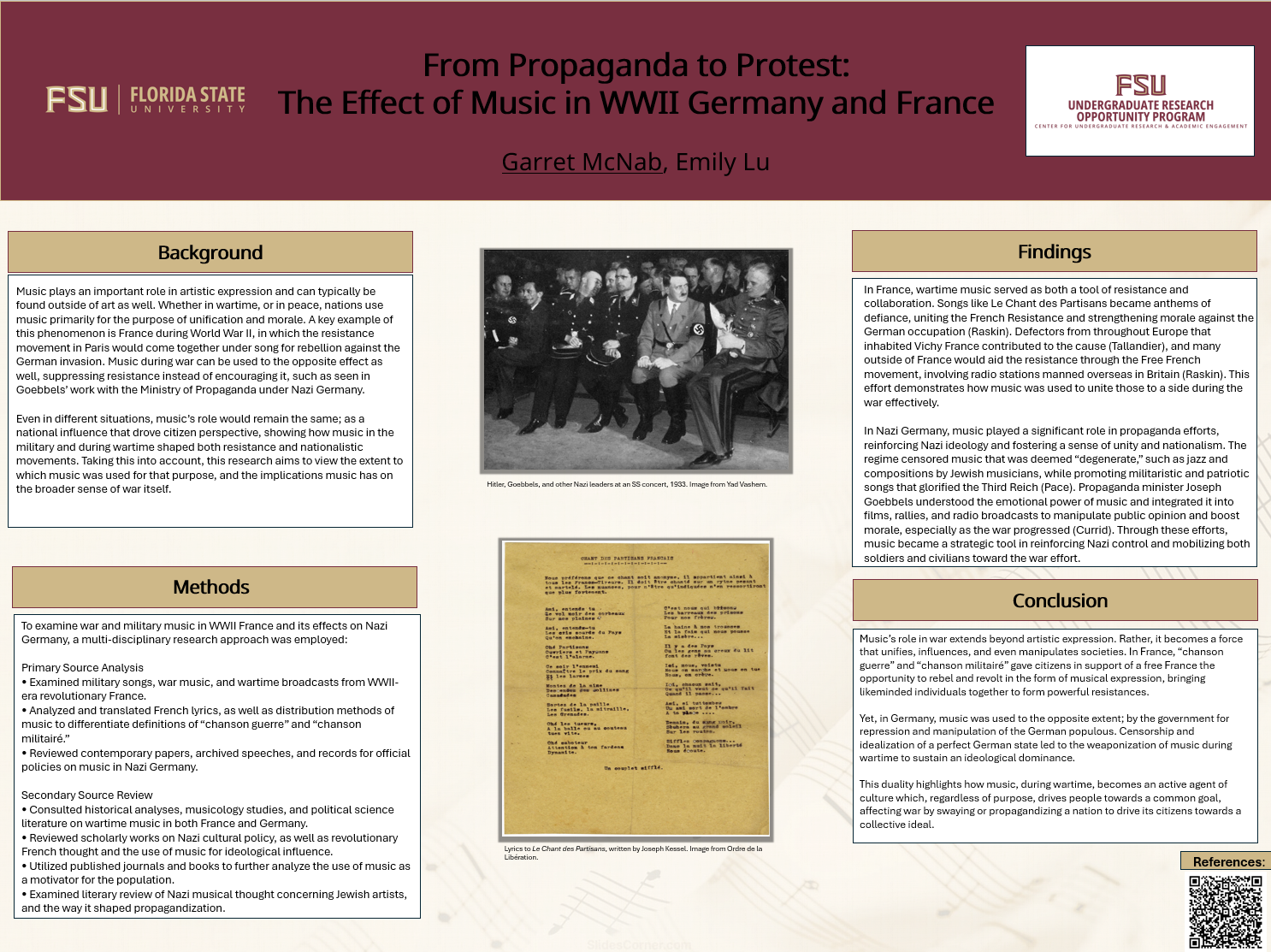Research Symposium
25th annual Undergraduate Research Symposium, April 1, 2025
Garret McNab Poster Session 2: 10:45 am - 11:45 am/ Poster #119

BIO
Hi, my name is Garret McNab, and I'm from Wesley Chapel, Florida. My major is Political Science, but I also enjoy learning about history and psychology. I'm hoping to do more research in the future and appreciate UROP for the opportunity.
From Propaganda to Protest: The Effect of Music in WWII Germany and France
Authors: Garret McNab, Emily LuStudent Major: Political Science
Mentor: Emily Lu
Mentor's Department: Department of History Mentor's College: College of Arts and Sciences Co-Presenters:
Abstract
Music is often described as the most emotional form of art, where one can show one's entire range of feelings by putting it into song. Contrary to this, war is commonly seen as cold, unfeeling, and brutal. However, the two are often interlinked during any era, with soldiers singing as they march into battle, citizens creating songs of pride, and countries declaring themselves through song. This begs the question, how does wartime music affect the course of war, and how does it change in response to a country’s goal?
Through analysis of World War II era France and Germany, this study finds differences between military and wartime music in WWII France and Germany through examination of propaganda songs, soldier marches, and resistance anthems using historical records and contemporary accounts. Archival sources will be evaluated to understand the music’s role in morale, propaganda, and national identity. It is expected that wartime music in both France and Germany played a crucial role in shaping public sentiment, boosting soldier morale, and reinforcing ideological narratives. While Germany's music heavily aligned with state propaganda, France’s music reflected a rebellious national experience, with resistance at its core. This study highlights the power of music as a tool of wartime influence, offering insights into its psychological and cultural impact during WWII. Understanding these musical dynamics enhances our knowledge of propaganda, resistance movements, and the broader sociopolitical landscape of war.
Keywords: music, history, war

